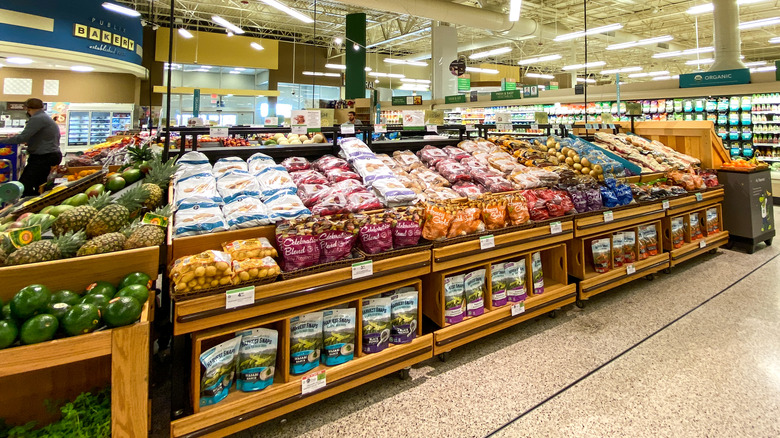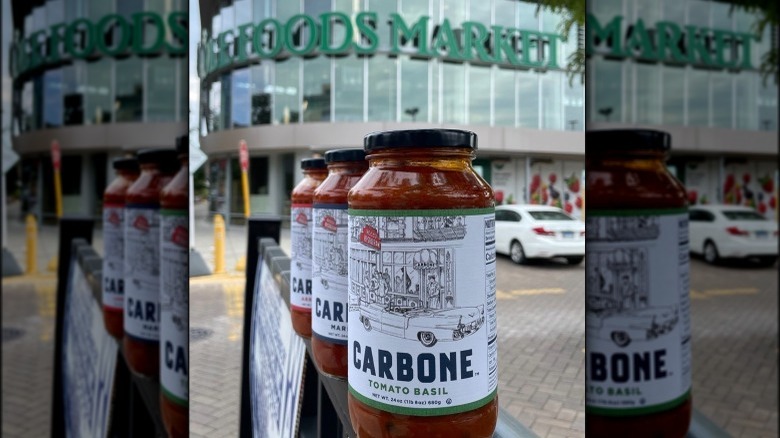The A-List Italian Brand That's Headed To Whole Foods
With a growing list of quality standards to meet, selling at Whole Foods isn't for every purveyor. The company prides itself on being an industry leader in natural and organic foods, stocking the shelves with over 20,000 organic products sourced globally, with a preference for local vendors. A purveyor's values and best practices must align with Whole Foods to land a coveted spot on the shelves of the more than 500 stores in North America and the U.K., with more in the queue.
Whole Foods vets products rigorously so customers can shop with ease. The Amazon-owned supermarket chain has banned 230 ingredients that don't meet their conscientious standards. Seafood must be sustainably wild-caught or responsibly farm-raised for the fishmonger to carry it. Meat sold by their butchers must come from antibiotic and hormone-free animals. According to Whole Foods, there is transparency between the market and the farms, standards for how the animals should live, and expectations for how they are to be slaughtered.
Reaching $15.7 billion in revenue in 2021, manufacturers are wise to try to get a piece of the action. In 1992, Rao's, the legendary New York Italian restaurant, broke into the retail market, offering its premium marinara sauce at four times the price of its competitors but five times more profitable (via Food Navigator). Following Rao's lead, another upscale Italian brand hopes to take a bite out of that niche as it heads to Whole Foods this month.
Carbone pasta sauces at Whole Foods
Famed chefs Mario Carbone and Rich Torrisi of the Major Food Group, a hospitality conglomerate that includes the famous Carbone and Torrisi Italian Specialities restaurants in New York City, are coming to Whole Foods (per PR Newswire). Marketed by Carbone Fine Food, the company will sell three of its best-selling sauces at Whole Foods; marinara, arrabbiata, and tomato basil.
Prepared in small batches from hand-picked tomatoes grown in volcanic ash from Italy, the chefs oversee the entire production, from choosing the farms to bottling the sauce (per Carbone Fine Food). The marinara and tomato basil sauce contains whole-peeled tomatoes, tomato puree, sea salt, basil, onions, olive oil, garlic, and oregano — just like in their restaurants. In contrast, arrabbiata offers a kick from crushed red pepper flakes in a red sauce.
Carbone Fine Food currently offers six types of pasta sauce on their website and can be found in other supermarket chains throughout the country. As more customers want to eat at home post-pandemic, Eric Skae, CEO of Carbone Fine Food, thinks expanding their reach in Whole Foods will offer home cooks restaurant-quality ingredients at home (via PR Newswire).

